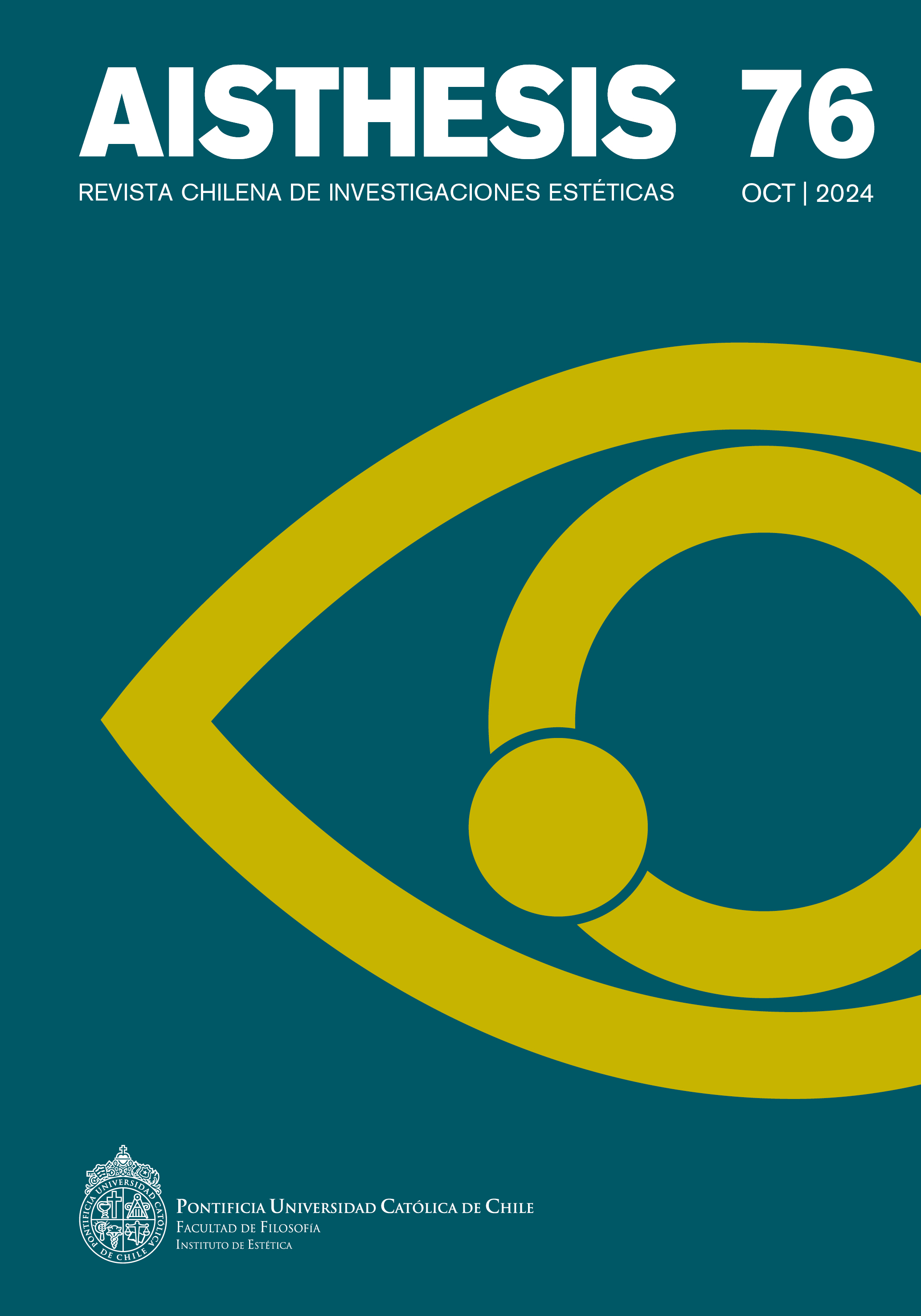Aesthetics of the Insensitive: The In-World Order of Relations
Main Article Content
Abstract
From a theoretical study, this article seeks to examine the aesthetic-affective dynamics that are manifested in fields of experiences which have ordained in-word practices. Such an examination assumes a reflection that aims to problematize insensitivity, not only as an antinomy of sensitivity, but also as an analytics of the insensitive that has regulated a feeling of indifference to the other, organizing a way of inhabiting the present world that would be fulfilled in the individualized particularity and in the contingency, thus revealing a readiness for the insensitive. The thesis that is support attempted is that this availability would originate from a psychic topic which would legitimize the Lacanian idea that the subject arises as an effect of a signifier difference, namely, of a constitutive crack which entails an eccentric relationship with the I and which would manifest itself in an internal segregation exteriorized in the antinomy sensitivity/insensitivity; but also, reflected in the other antinomy hospitality/inhospitality in the constitution of the experience of how we make world.
Downloads
Article Details

This work is licensed under a Creative Commons Attribution-NonCommercial-ShareAlike 4.0 International License.
All contents of this electronic edition are distributed under the Creative Commons license of "Attribución-shareAlike 4.0 Internacional" (CC-BY-SA). Any total or partial reproduction of the material must mention its origin.
The rights of academic works published in this publication belong to their authors., who grant to AISTHESIS: Revista Chilena de Investigaciones Estéticas the license for its use. The management of the permits and the authorization of the publication of the images (or of any material) that contains copyright and its consequent rights of reproduction in this publication is the sole responsibility of the authors of the articles
References
Referencias
Alighieri, Dante. Commedia: inferno. Revisione del testo e commento di Giorgo Inglese, nuova edizione. Carocci editore, 2016.
Aristóteles. Acerca del Alma. Gredos, 1978.
––. Ética a Nicómaco. Alianza, 2005.
––. Física. Gredos, 1995.
Bulo, Valentina. «(no) tocar: consentimiento, placer y violencia». Poblado en llamas. Comunidad y violencia en la mirada filosófica contemporánea. Tecnos, 2022.
Butler, Judith. Los sentidos del sujeto. Herder, 2021.
Butler, Judith y Athena Athanasiou. Desposesión. Lo performativo en lo político. Paidós, 2022.
Cadahia, Luciana. Mediaciones de lo sensible. Hacia una nueva economía de los dispositivos. Fondo de Cultura Económica, 2017.
Carrasco-Conde, Ana. Decir el mal. Galaxia Gutenberg, 2022.
De Clercq, Danielle. Etymons grecs et latins du vocabulaire scientifique français.
Derrida, Jacques y Anne Dufourmantelle. La hospitalidad. Ediciones de la Flor, 2008.
Freud, Sigmund. L’inquiétante étrangeté (Das Unheimliche), 1919. Editions Philosophie, 2019.
Giannini, Humberto. La «reflexión» cotidiana. Hacia una arqueología de la experiencia. Editorial Universitaria, 2004.
Hegel, G. W. F. Fenomenología del espíritu. Fondo de Cultura Económica, 1993.
––. Phänomenologie des Geistes. Meiner, 1988.
Heidegger, Martin. Ser y tiempo. Fondo de Cultura Económica, 1951.
Hochman, Paula. «El sujeto, nombre de lo excéntrico». Revista Borromeo, nº 3, 2012.
Kant, Immanuel. Crítica de la razón pura. Taurus, 2006.
Lacan, Jacques. «Le désir et la jouissance (1958)». Les formations de l’inconscient. Du Seuil, 1998.
––. «Le séminaire sur La lettre volée (1956)». Écrits. Du Seuil, 1966.
––. «Le stade du miroir comme formateur de la fonction du moi [Je] comme nous le révèle l’expérience psychanalytique». Écrits. Du Seuil, 1966.
Merleau-Ponty, Maurice. Fenomenología de la percepción. Planeta-Agostini, 1993.
––. Lo visible y lo invisible. Seix Barral, 1970.
Rancière, Jacques. El desacuerdo. Política y filosofía. Nueva Visión, 1996.
Sato, Yoshiyuki. Pouvoir et résistance. Foucault, Deleuze, Derrida, Althusser. L’Harmattan, 2007.
